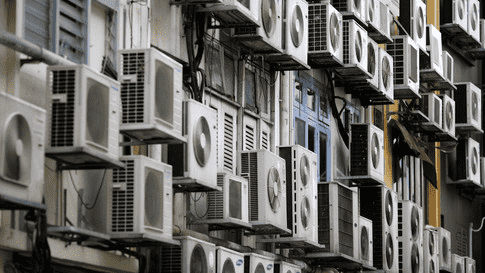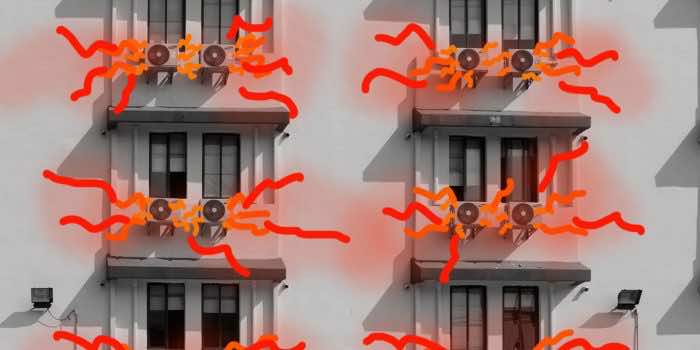Currently, air conditioning is responsible for nearly 4% of global greenhouse gas emissions, according to an analysis by scientists from the Department of Energy’s National Renewable Energy Laboratory and Xerox’s Palo Alto Research Center released in March.
“It’s a good and a bad thing,” Jason Woods, an NREL senior research engineer and co-author of the new study, said in a statement about the research. “It’s good that more people can benefit from improved comfort, but it also means a lot more energy is used, and carbon emissions are increased.”
“We’ve already made the existing, century-old technology nearly as efficient as possible,” Woods said in the statement. “To get a transformational change in efficiency, we need to look at different approaches without the limitations of the existing one.”

The startup, Blue Frontier is working on technology that will make air conditioning more efficient with fewer harmful environmental by-products, and just scored a $20 million round led by Bill Gates investment fund, Breakthrough Energy Ventures.
Blue Frontier uses one-third to one-fifth the number of refrigerants that would be needed for a conventional system, it can use a refrigerant with a lower global warming potential. “The combined effect is an 85% to 87% reduction in our system’s contribution to global warming,” CEO Daniel Betts told CNBC.
The technology was actually discovered in efforts to kill airborne anthrax, which is a potential bioterrorism weapon, according to Betts.
“Liquid desiccants are excellent antiseptics and bactericides. So the contact of anthrax with the liquid desiccant would kill it. This initial research led to innovations and discoveries that form the basis of Blue Frontier’s technology,” Betts told CNBC. “In fact, one of the advantages of Blue Frontier air conditioning technology would be a general improvement of indoor air quality and a healthier indoor environment.”
The liquid desiccant that Blue Frontier uses can be stored inside the air conditioning machine in a small plastic tank, storing the cooling capacity to be used when it’s most needed. That’s critical for a decarbonizing grid that will be heavily reliant on renewables, like wind and solar, which are both intermittent sources of energy.

For VoLo Earth Ventures, another investor in the round announced Thursday, that storage capacity is also a key reason why Blue Frontier’s solution is attractive.
Before launching Blue Frontier, Betts launched another air conditioner start-up, Be Power Tech, which planned to commercialize technology that both was an air conditioner and a source of energy. The startup failed because both the technologies were not developed enough.
“The insight was that we need to do something that does not change how people interact with the air conditioner in the building,” Betts said. “To the installer, and to the builder, or to the building owner, it should just be a replacement or conventional air conditioner with ours.”
Some test units will be installed in buildings in 2022, and another round of pre-commercial units are expected to go into buildings in 2023 and then the first commercial product for commercial buildings will be available in 2025. And if all goes well, a residential product will be on the market by 2026 or 2027, Betts told CNBC.


